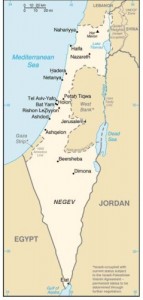Two attempts to assassinate Israeli diplomats failed on Monday in India and Georgia, prompting Israel to accuse Iran for being behind the attacks just days after U.S. officials admitted Israel teamed with terrorists to assassinate civilian Iranian nuclear scientists.
 The wife of Israel’s military attaché in Delhi was injured by a bomb attached to her car, while a bomb on an Israeli diplomat’s car in Tbilisi was detected before any harm was done. Israeli Prime Minister Benjamin Netanyahu blamed both Iran and Hezbollah, without giving any evidence.
The wife of Israel’s military attaché in Delhi was injured by a bomb attached to her car, while a bomb on an Israeli diplomat’s car in Tbilisi was detected before any harm was done. Israeli Prime Minister Benjamin Netanyahu blamed both Iran and Hezbollah, without giving any evidence.
While this is certainly possible, Iran denies involvement and no evidence for it has been put forth. The attacks did come a day after the four-year anniversary of the assassination of Hezbollah leader Imad Mughniyah, which Hezbollah blamed on Israel and vowed revenge.
Without evidence, no statement of culpability can be reliably made at this point. But Israel has been wrong before in its accusations of attacks.
The attacks came just days after NBC News broke a story in which an unnamed U.S. official revealed that Israel funded, trained, and armed the Iranian terrorist dissident group Mujahedeen e-Khalq (MEK) in carrying out assassinations of Iranian nuclear scientists. That Israel would have the temerity to condemn acts of covert terrorism is hypocritical.
Meanwhile, the opportunity to justify a war on Iran was not lost. Speaking before a Miami conference, the well-known lawyer Alan Dershowitz said he believes an Israeli strike against Iran’s nuclear facilities is legally justified as “proactive self-defense.” The problem, obviously, with that is the fact that Iran’s nuclear program is so far civilian in nature and presents no threat to Israel.


